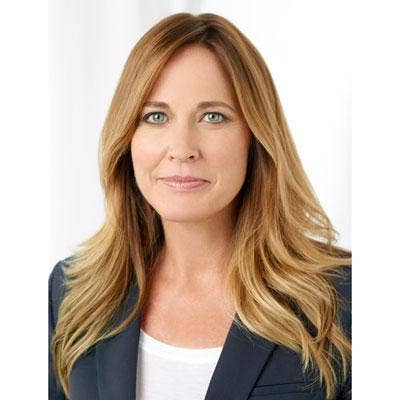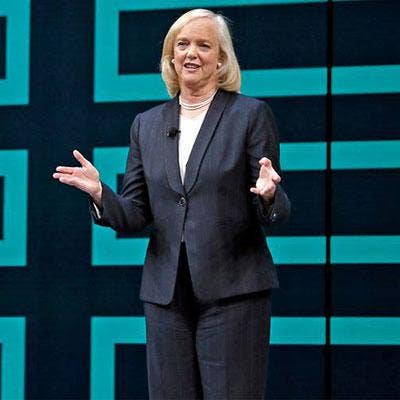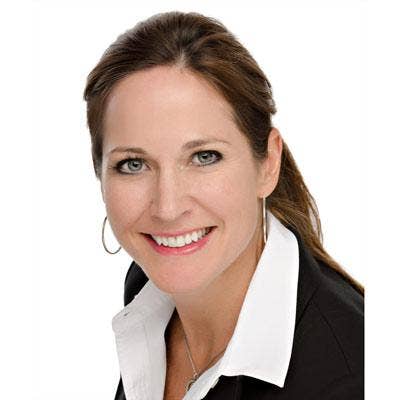HP Channel Chief Dismore: How Women Can Find Confidence To Overcome Obstacles And Become Top Performers

Advice From A Channel Chief
Are you in the right job for your skillsets? Do you trust yourself enough to tell your boss when you see your company making a mistake? Do you love what you do? During a keynote presentation at this month's Women of the Channel East Leadership Conference, HP Americas channel chief Stephanie Dismore shared her experiences over the past 20 years as a successful woman in IT. Dismore, vice president and general manager of Americas Channels at Palo Alto, Calif.-based HP, gave advice that ranged from heartfelt to humorous on how women can find the confidence and vision they need to overcome obstacles and become top performers in their careers. What follows are edited excerpts of the story she shared.

On What It's Like To Be A Woman In Tech Today...
I've been in this industry about 20 years, and I will tell you it is a great time to be a woman in this industry. In fact, it's a great time to be a woman in the U.S. Is it perfect? No, we have a lot of work to do. But think about the women before us that fought for the right to vote, who changed conversations, who battled adversity. I'm proud to be part of the 70 percent of moms with kids under 18 who work. Proud that in the U.S. women own roughly 10 million businesses that account for $1.4 trillion dollars. So is it perfect? Absolutely not. It is far from perfect, and we see that more than ever. But we didn't get this far by sitting back and watching. We got here today because women before us fought the fight.

On Finding The Right Role...
As a leader, your job is to find the right role for your people. I remember clearly, and I would say this is probably one of hardest things I've done as a manager, I came to a new position at HP, and when I was put there, a significant retail partner of HP's was not doing well, and it was critical that we get this whole business back on track. I talked to all stakeholders that worked with this partner [and it became clear] the issues all came down to one person. She is a high-performer. She's aggressive and detailed, you'd want her on your team, and she was creating a massive issue because her skill sets weren't a fit. So I ended up removing her from the position. I can tell you she's in a new role at HP now, and she's thriving.

On Not Doubting Yourself...
If you see something that's broken, if you have a better way of doing something, and you don't bring it to the table, you're robbing us, the executives and company, of the chance to make this a better place. My personal experience in this was in 2011 during the hard drive crisis. There were 12 of us around the table from around the world, and I was the only one who represented the consumer channel. And they laid out the plan for how we're going to allocate hard drives: We're going to delay shipments here two weeks and there two weeks. And I almost didn't say anything because I was intimidated, I figured, they're smarter than me, they know about consumer, and it was my first meeting around the board table. So the meeting is about to adjourn, and I said, "I just have one question. You know that in consumer, if you sold in 200,000 units that are going to run in an ad all weekend, you can't not have that product on that weekend? It's perishable demand; it goes away." It created pause in the room, and they reallocated the entire inventory that we had because I spoke up. Yeah, it was scary, but that was a big "a-ha" for me to realize that when you have a seat at the table, you have a responsibility to contribute.

On Not Making Assumptions About What's Common Knowledge…
You might assume people above you know things because in your mind it's really basic, but in their world, they haven't even thought about it. So, my suggestion, my advice? Own it. You are a badass. Own that and take that with you, whether it's meetings, whether it's projects, whatever you're doing, own who you are, what you've done and know that you have gained your experience, you have knowledge, you have expertise that your team needs or your senior leadership team needs, or your partners need. It's a huge opportunity.

On Finding (And Sticking To) Your Own Path…
It's really important that you keep your line of sight in front of you. We all know the distractions, the issues that we have every day, the fire drills, the this and the that, can take us off our path. It is critical that when you start, you should have this in mind, this should be the beginning of your journey: Where do I want to go?
Before you get a sponsor, figure out where you want to go: line of sight. If you want to be on a board, figure out what kind of board and why: line of sight. It's so important to make sure you know where you're trying to go, otherwise you will be torn in different areas and will lose sight of where you're trying to go. Now of course there are fire drills and of course there are issues and challenges, but if you have that in the back of your mind, you will get there, and you will get there faster if you keep your eye on the prize.

On Taking Good Advice Where You Can Get It…
A good example of this was my first meeting with Meg Whitman (pictured). I was nervous and someone came up to me and said, "Do you want some advice?" Absolutely. He said, "Be bold." I thought, OK, I can do that. "Be brief." OK. "And then be gone." OK, great advice. I thought, that's line of sight, right? Knowing where you're going.

On Staying Humble...
My 14-year-old daughter asked me what I do when I'm on the road. I thought, "This could be a big moment for my daughter, where she might want a career in sales, she might want to go into technology." So I paused, and I thought about it. I said, "Sometimes I meet with partners and we negotiate, or I meet with employees and product managers. Other times I'm on stage talking to thousands of people and talking about how we make products that enable lives and enhance productivity, make it more efficient so people can do their jobs better." She looked at me and said, "Mom, that sounds really boring."

On The Importance Of Passion...
For me, while it may sound a little cliche, you do what you love. I believe when you do what you love, you operate in the areas of your strength. And when you operate in areas of your strength, you get excited. You're engaged, you're blending your skillset, experience and authenticity, and you automatically stand out. That's what's foundational to true success: when you watch people do what they love, that's when they shine.